11:10
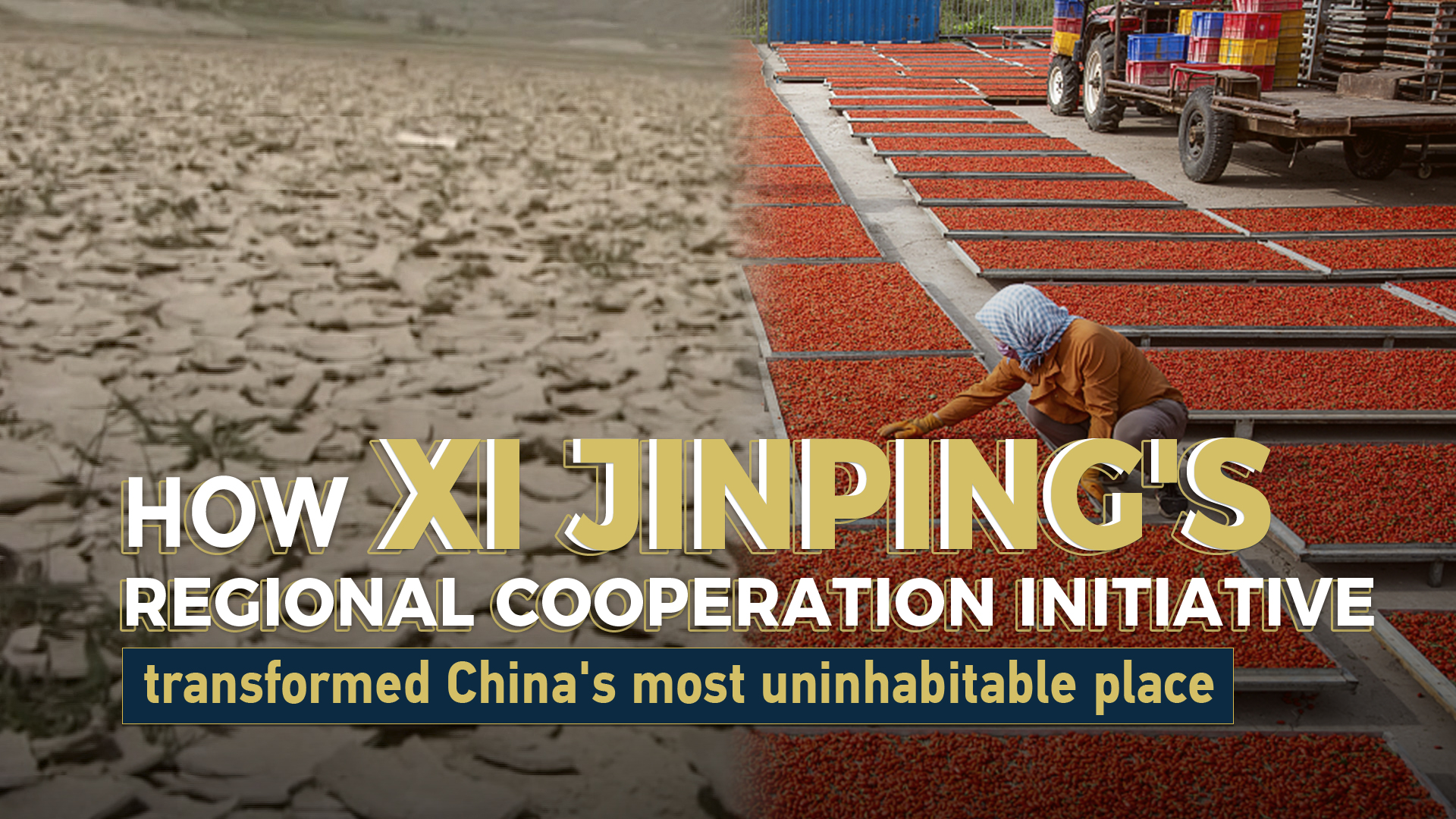
Viewers have flocked to tune in to "Minning Town," a Chinese TV drama spotlighting a real-life poverty alleviation project in northwestern China from the 1990s.
The show, which scored a superlative 9.4 out of 10 based on over 100,000 reviews on Douban, China's equivalent of IMDb, is based on the true story of how a unique mode of poverty alleviation cooperation was formed between the Ningxia Hui Autonomous Region and the coastal province of Fujian.
"Minning" is a portmanteau comprising two Chinese characters associated with Fujian and Ningxia.
Over the past two decades, more than 60,000 villagers in Ningxia, under the guidance of China's poverty alleviation policy and with assistance from Fujian, have triumphed over poverty after their relocation to Minning Township from Xihaigu.
The Fujian-Ningxia poverty alleviation partnership pairs officials in Fujian with their counterparts in Ningxia so that they can better coordinate necessary resources and support to help poverty alleviation efforts in Ningxia. It is an important strategy initiated and promoted by Xi Jinping while he worked in Fujian.
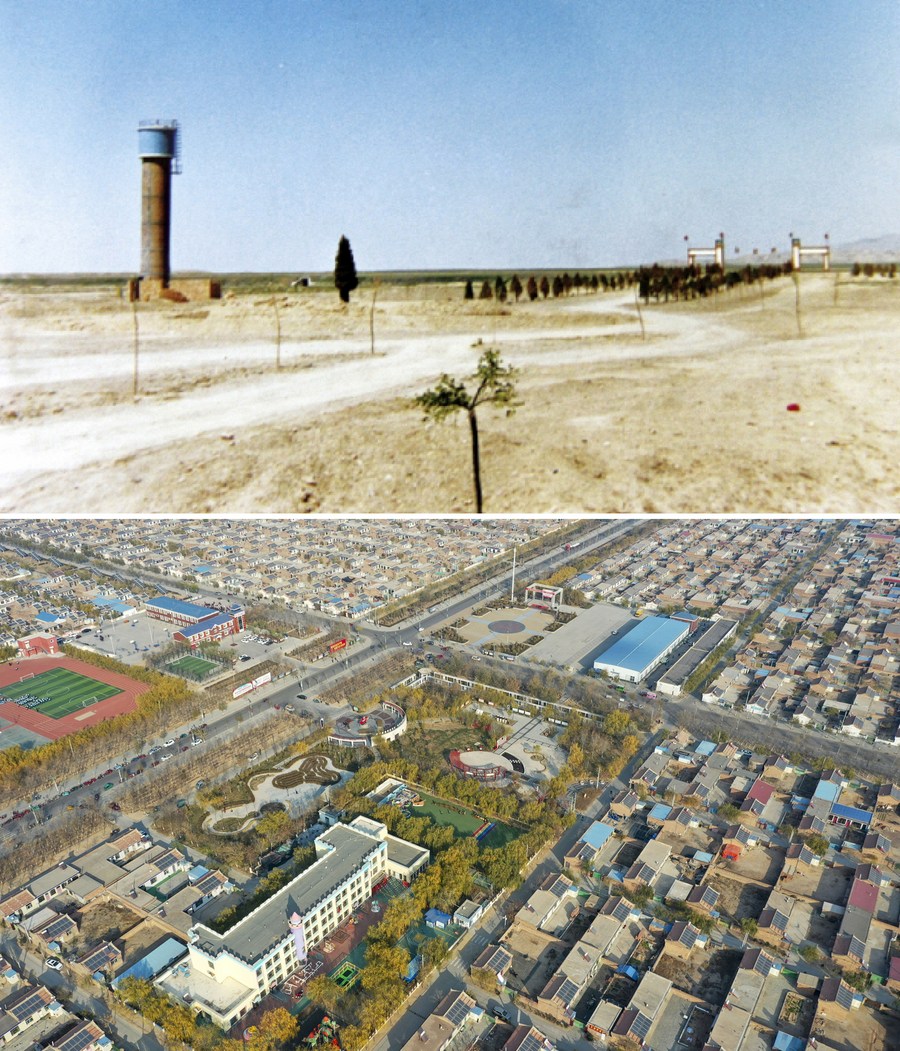
Combo photo shows a view of Minning Township during its initial period of construction (top, file photo), and an aerial view of Yuanlong Village of Minning Township in Yinchuan, northwest China's Ningxia Hui Autonomous Region. /Xinhua
Combo photo shows a view of Minning Township during its initial period of construction (top, file photo), and an aerial view of Yuanlong Village of Minning Township in Yinchuan, northwest China's Ningxia Hui Autonomous Region. /Xinhua
'Uninhabitable poverty king'
Xihaigu is a largely mountainous region in Ningxia, once known as China's "poverty king."
Due to land reclamation, drought and a fragile ecological environment, the Food and Agriculture Organization of the United Nations declared Xihaigu to be uninhabitable for humans after visiting in 1972.
In 1996, Fujian established the Fujian-Ningxia poverty alleviation leading group. Xi, who was then deputy secretary of the Fujian Provincial Party Committee, served as the leader of the group.
Recalling his first visit to Xihaigu in 1997, Xi said he was shocked. "I'd seen and lived in impoverished places. But I was stunned that in the 1990s there was still a place with such poor and difficult conditions."
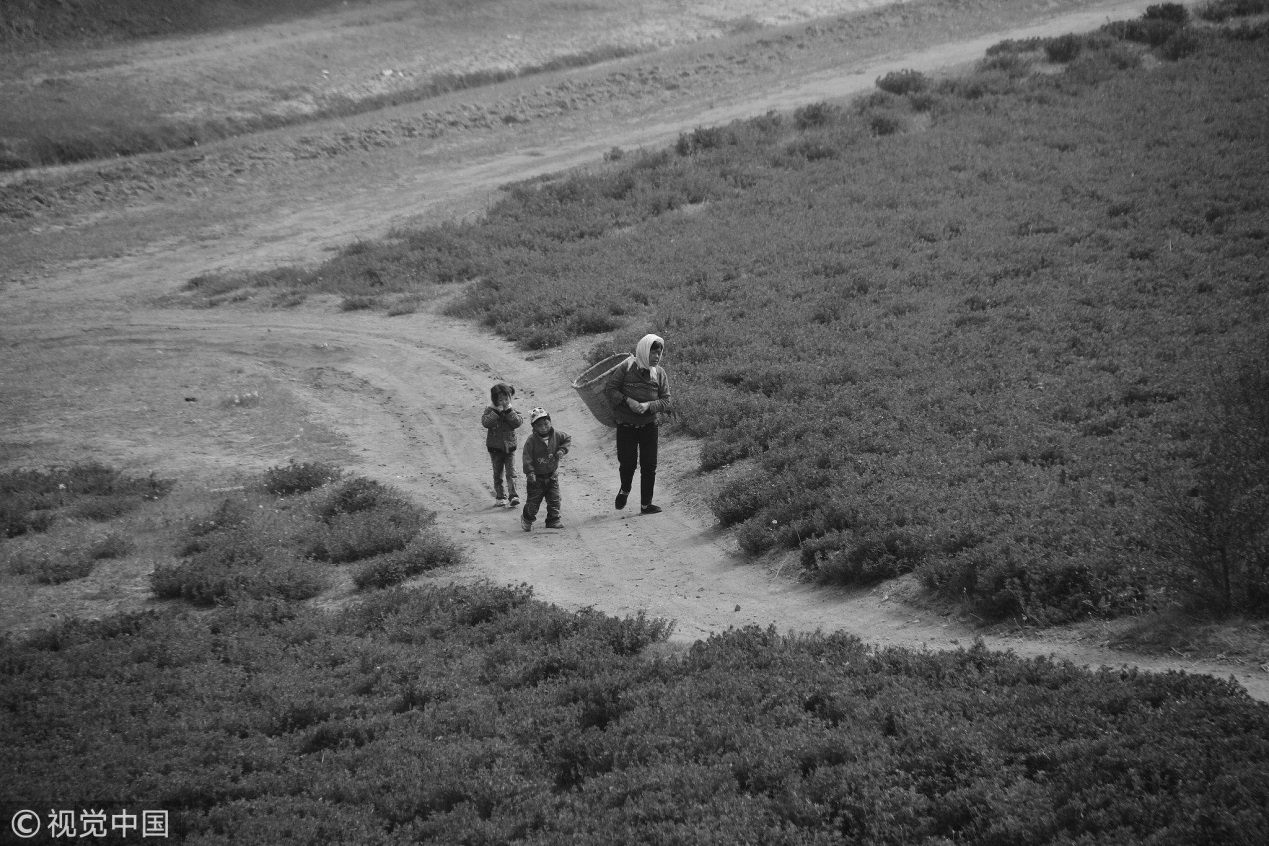
In 1972, Xihaigu was classified by the United Nations as "one of the least suitable areas for human habitation in the world." /VCG
In 1972, Xihaigu was classified by the United Nations as "one of the least suitable areas for human habitation in the world." /VCG
Moving out
"Diaozhuang" is a word in the local Ningxia dialect which means "moving people out of places where natural resources are unable to support local people, to places suitable for development."
After investigating a local Diaozhuang camp in 1997, Xi planned a resettlement project involving the building of "Minning Village" near the regional capital Yinchuan.
Several thousand families moved from Xihaigu to Minning. In 2001, the new town was established. Now it is comprised of six administrative villages.
To improve people's living conditions, the town initially focused on accelerating infrastructure construction, including water conservancy, soil conservation, rural power grids, housing and roads.
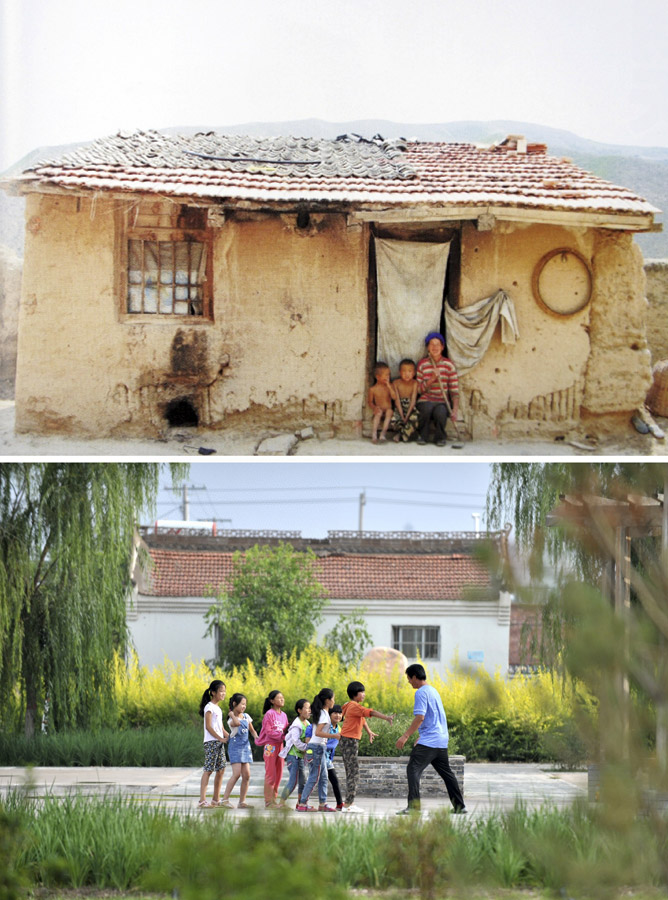
Combo photo shows a family sits in front of their home more than 20 years ago when the development of the new town just got underway in Minning (top, file photo) and children play in Minning Township in Yinchuan, Ningxia, August, 2018. /Xinhua
Combo photo shows a family sits in front of their home more than 20 years ago when the development of the new town just got underway in Minning (top, file photo) and children play in Minning Township in Yinchuan, Ningxia, August, 2018. /Xinhua
'Magic grass'
Xi stressed the need to ensure people who relocated to Minning had a stable life and a route to prosperity.
Juncao, or "magic grass," is made up of the Chinese characters meaning "mushroom" and "grass." The particular type of grass was discovered by Chinese scientists to be an economical and environment-friendly substitute for timber to be used as substrate for growing mushrooms.
Endorsed by Xi, Juncao technology was included in Fujian-Ningxia poverty alleviation cooperation. Experts from Fujian were sent to Xihaigu to teach local villagers mushroom-growing techniques.
Within 10 years, there were 17,500 Juncao farmers across the region, each adding more than $700 to their annual income. Meanwhile, the rise of the Juncao industry put in motion the local agricultural circular economy.
The per-capita yearly disposable income of residents in Minning rose by more than 20 times to 13,970 yuan ($2,013) from 1997 to 2019.
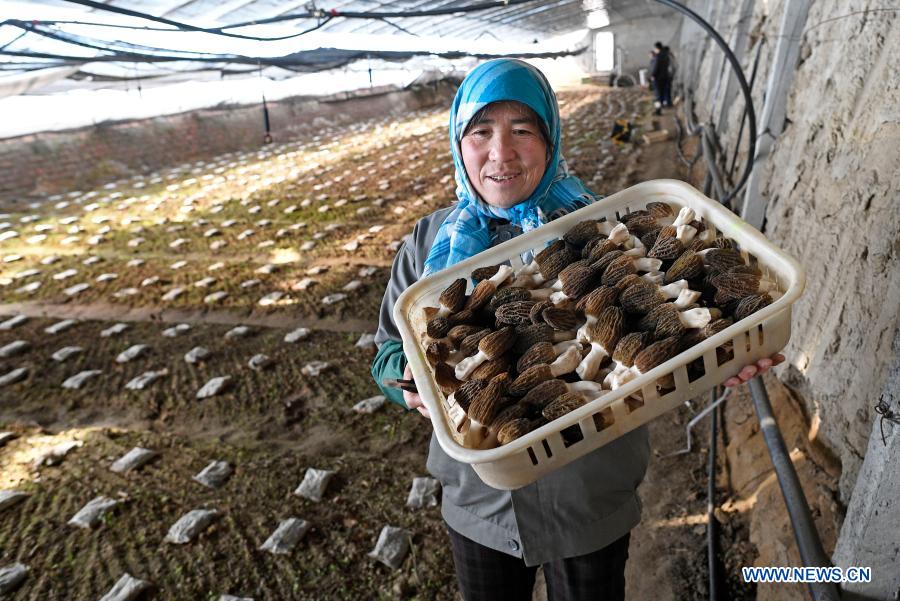
A farmer shows harvested mature morel mushrooms in a greenhouse at an agriculture garden in Zhenbeibu Town of Xixia District of Yinchuan, Ningxia, January 12, 2021. /Xinhua
A farmer shows harvested mature morel mushrooms in a greenhouse at an agriculture garden in Zhenbeibu Town of Xixia District of Yinchuan, Ningxia, January 12, 2021. /Xinhua
Great devotion
In 2020, Xihaigu saw its last impoverished county removed from the national poverty list. In December, Ningxia announced it had lifted all its population out of poverty.
More than 180 officials from Fujian, alongside over 2,000 workers, experts, academicians and volunteers, have worked hard with local officials and the people of Ningxia in the battle against poverty.
During the 24 years, Xi Jinping paid four visits to Ningxia, attended five meetings on poverty alleviation coordination, and made three speeches addressing outstanding issues.

